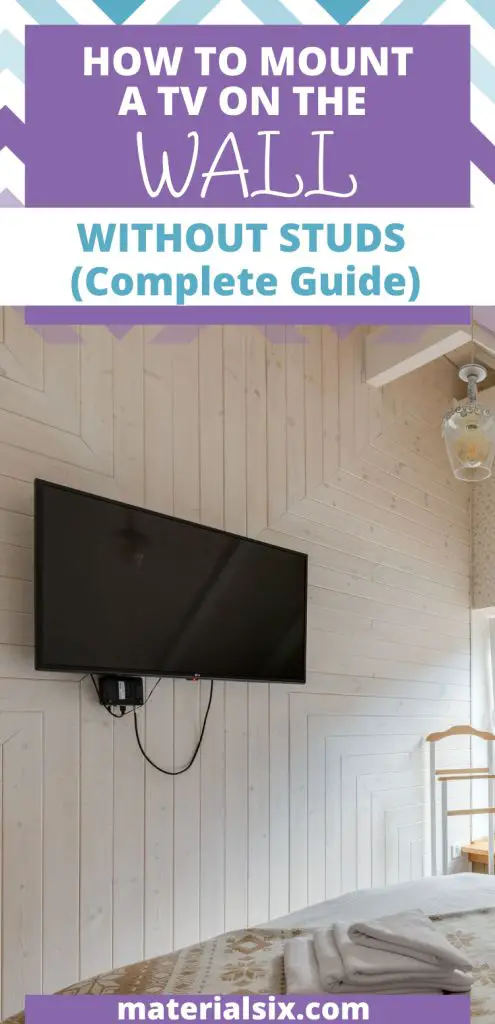Do you want to save some space by mounting a TV on the wall? Before understanding that topic, it’s essential to know if it’s even possible to do so.
And if you don’t want to use studs or have any to mount the TV, don’t worry because alternatives are available.
Mounting TV without studs is now possible using molly bolts, mounting plates, toggle anchors, ceiling mounts, and other options. It’s imperative to consider the weight and size of the TV so that you can select the perfect option.
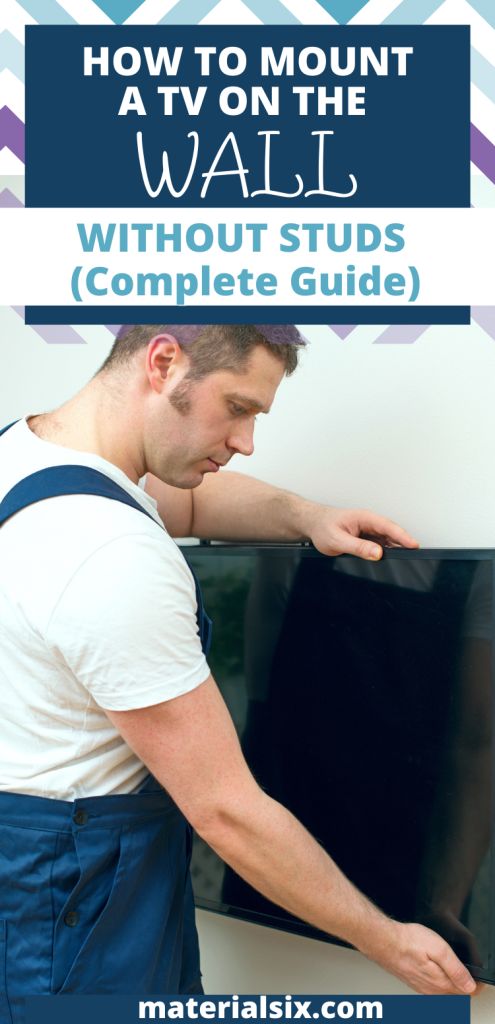
How to Mount a TV on the Wall Without Studs?
Well, it’s a daunting task. So, if you’re interested in knowing which of the options mentioned above is perfect for you and how you can use it to mount TV, follow the guide below.
Use Molly Bolts
Molly Bolts are somewhat more challenging to use than regular drywall anchors, but they are highly strong and suitable for medium and heavy loads.
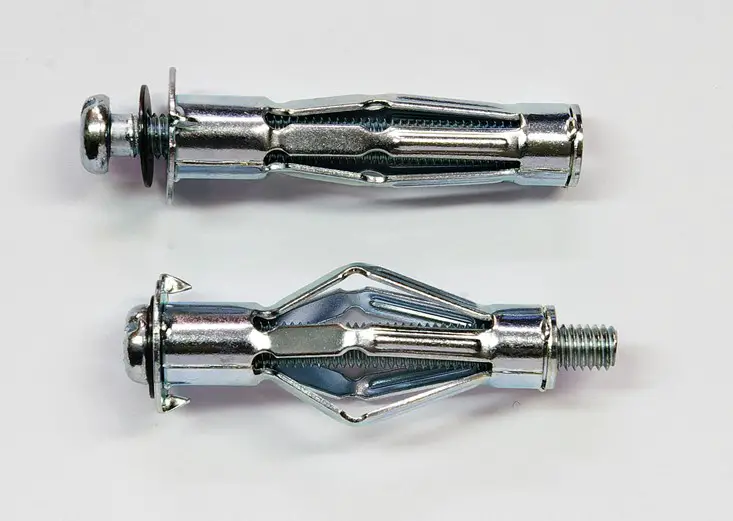
You’ll find two types of Molly bolts: non-pointed and pointed. Pointed Molly bolts have a sharp tip. That’s why it’s easier to place them with some delicate yet strong blows of a hammer.
Non-pointed Molly bolts require you to cut out an installation hole. Thus, they’re more suitable for plaster walls.
Once it’s left untightened, the bolt’s sleeve stays thin. When you tighten it in the walls, its sleeve swells and forms an anchor to the drywall’s backside.
Toggle anchors work similarly. Once you’ve removed the screw, swap it with the TV wall mount’s screws after the Molly bolt gets securely attached.
Use Toggle Anchors
Toggle anchors are also called toggle bolts. They have a similar appearance to regular screws, but there’s a butterfly toggle at the end.
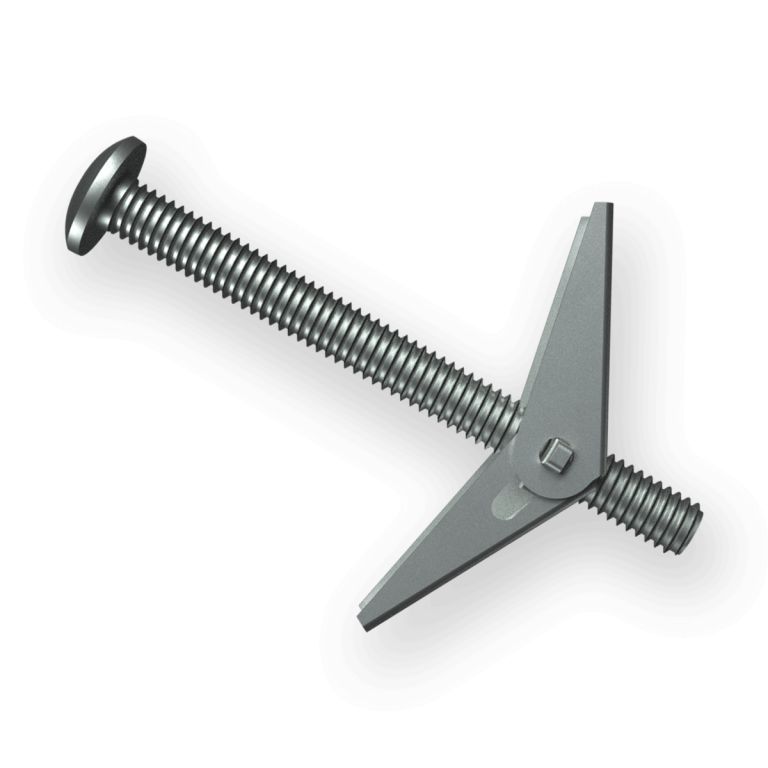
Once toggle anchors get installed into the wall, they operate by anchoring to the backside of the drywall. Pulling or exerting any other outward force on the screw has no effect. That’s because the toggle makes the entire sheet of drywall more resistant than just the crumbly core.
To put it another way, it’s the difference between tugging over the whole wall versus a single screw.
The above methods for mounting TV without studs have their own set of advantages and disadvantages. You can choose which approach is best for you based on the style of your home and the size and weight of your television.
How to Mount a TV Using Anchors (Step-by-step Guide)
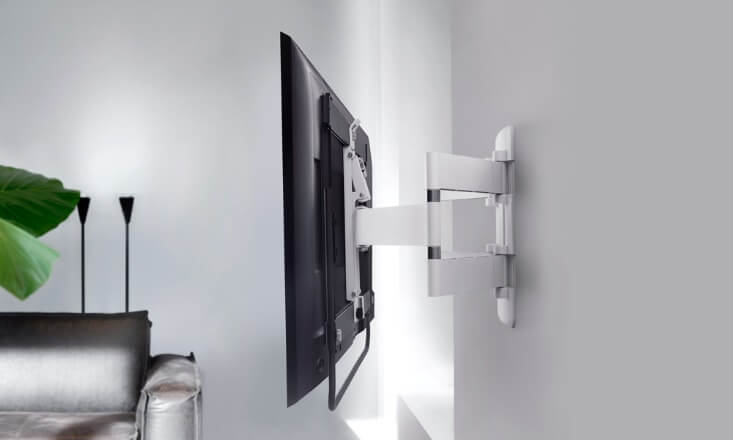
- Select The Appropriate Anchors
Before choosing the anchors for mounting TV without studs, you should know their size and weight. To find that out, you can look it up online, search its box or manual.
After determining the size and weight of your television, you should begin looking for the appropriate anchors to support it.
- Choose Where You Want To Mount Your TV
After you’ve decided on the suitable anchors for your TV, you’ll want to pick a position that you like and is hollow. Make a mark where you want your TV to go and make sure it’s at eye level.
Remove the mount from the box and attach the brackets to your television.
On the back of your TV, you’ll find four screw holes where you’ll assemble and install the bracket.
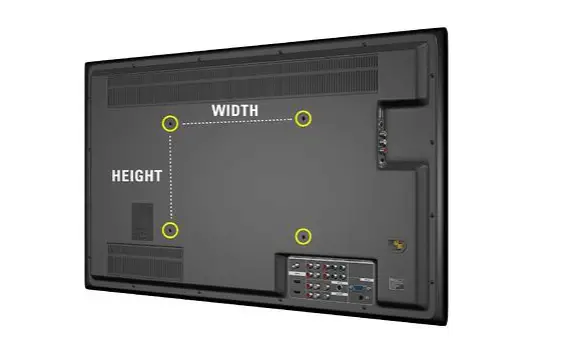
Your mount may come with various designs, but most TVs will have a small sticker on the back indicating the pattern you should use.
After you’ve assembled the components of your bracket, you may attach it to the TV with the screws and washers that came with it when you bought it.
Remember that the screws are easily stripped, so use a drill with a restriction to secure them in place.
Alternatively, you may need to drill these screws with additional caution. If the bracket is fully secured when you finish shooting the screws, you can move on to the next step.
- Drill Into the Wall after Marking the Anchors
Measure the area and draw a line through the holes where the anchors will go. The plywood or mounting plate can then be attached to the wall with toggle anchors or molly bolts.
- Tighten The Screws
Replace the toggles with screws, attach the plywood or mounting plate, carefully tighten the screws to the wall and the plywood, and make sure it’s secure once you’re done.
- Screw the TV bracket
To secure the TV mount to the plywood, select the appropriate screws. If the TV is too heavy, have someone assist you in carrying it.
- Hook Up Everything
Connect everything carefully, tighten everything, and double-check that everything is working well.
After following these steps, you can see if the angle is suitable for you. If you bought a tilting mount, you could carefully set it at the angle you prefer.
To keep the space around the mounted TV tidy and the watching experience enjoyable, it’s a good idea to hide all the cords behind it.
Consider Adding a Mounting Plate
Another option is to use any mounting plate in conjunction with your anchors. Often, mounting plates get made from metal, but you can also use plywood to make them.
That will help the anchors hold onto the television easily, and it also allows you to add anchors, making the mount more secure.
Mounting plates don’t really look visually appealing, especially if the tv is bigger than them. For the ultimate aesthetic effect, you might want to get a mounting plate smaller than the tv.
Also, you can select the one that has style and color and matches the theme of your room.
Mount The TV From Your Ceiling
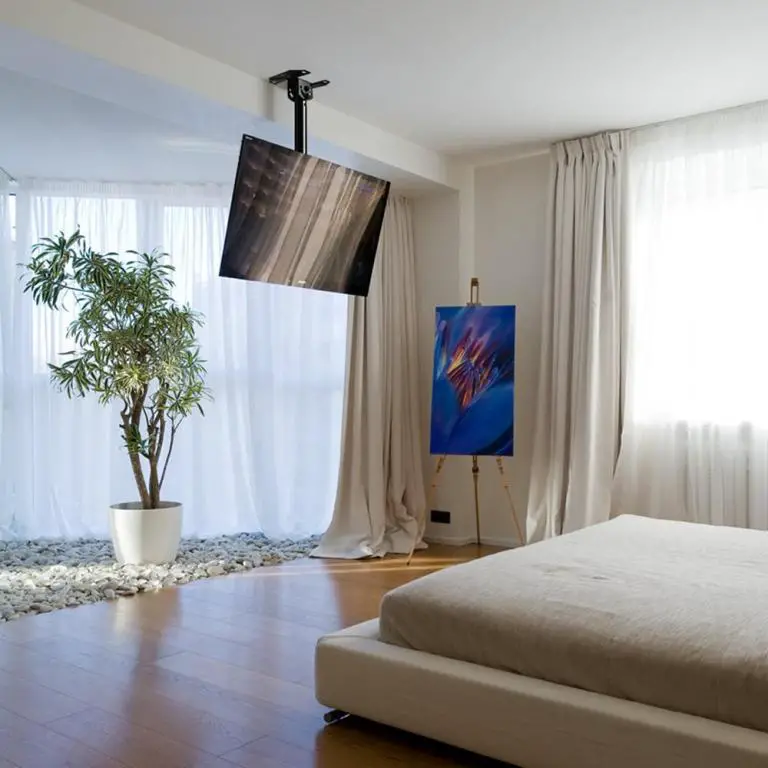
That isn’t the most popular option, but it can offer your room a classy look without requiring the use of studs. It’s possible that the installation will be more time-consuming and complicated than you anticipated.
If the ceiling contains beams, those will help you in mounting your television. Joists also work equally well. Actually, both have the same function as studs in the process of mounting.
The only difference is that you won’t be using studs. You might want to consider the TV’s weight and the ceiling’s height in such a case.
It won’t be worth it to install the TV in this way if the ceiling is too high. Check your joists or beams to determine the length of the screws that you’ll be using.
Essential Things to Remember While Mounting the Television without Studs
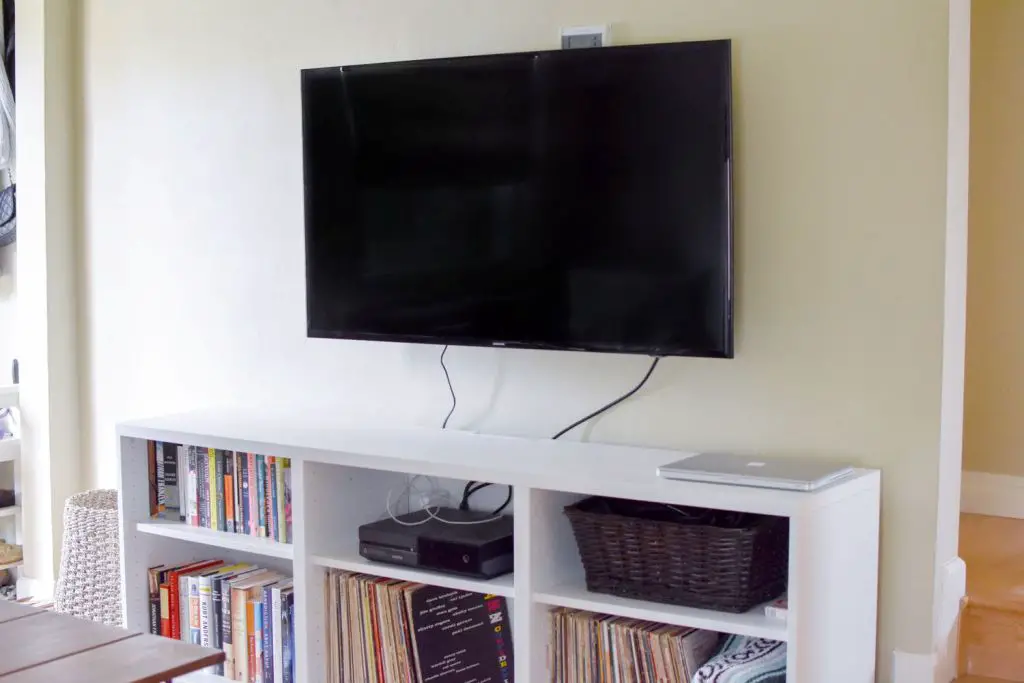
- The TV’s weight
Usually, screens of 32 inches can weigh approximately 13 kg (30 pounds). Thus, select anchors that will be able to handle the weight. Typically, the salesperson inside the story of the package of the TV specifies this information. It’s imperative to check the TV’s weight before you purchase your anchors.
- The wall’s condition
If any of these solutions are to work, your wall must be in decent condition. It would be risky to mount if your wall is on the verge of collapsing. Before you mount the TV, make the necessary repairs.
- The mount’s overall quality
The mount’s overall quality. Mounts are usually compatible with any television. They do, however, have restrictions on the weight and size of the items they can bear. Keep that in mind.
- The mount’s type
Anchor mounting is compatible with both movable and fixed TV mounts. It’s entirely up to you to decide which option is best for you. As movement adds extra weight, anchors may not be ideal, but they might work if you add the mounting plate.
Wrap Up
If you find yourself unable to attack TV to a stud, you can use drywall anchors in place of bolts. These can be found near the area where picture-hanging hardware is sold. Those come in multiple sizes, so choose the one based on the TV’s weight.
Finally, don’t be concerned if you’re mounting TV without studs. Use these alternatives in conjunction with a fixed TV mount, and if you’re still unsure, you can always hire a pro!
So wait no more, and start your first project now!
More from Materialsix:
- How To Hang Things On Brick Walls Without Drilling
- How to Install a Utility Sink Next to Washer
- How to Clean a Flat Screen TV without Streaks
- 17 Easy DIY TV Stand Ideas & Plans to Enhance Your Home Decor
- How to Mount Bookshelf Speakers On The Ceiling (Beginners’ Guide)
